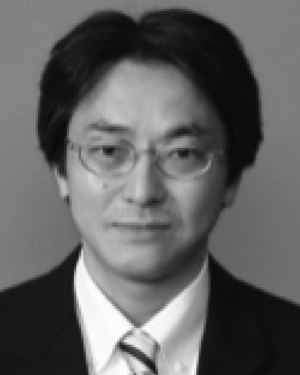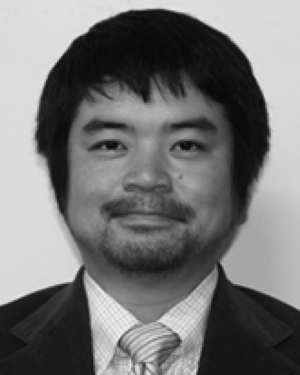Abstract:
In this paper, we propose a new method for solving multiobjective optimization problems with a large number of decision variables. The proposed method called weighted opt...Show MoreMetadata
Abstract:
In this paper, we propose a new method for solving multiobjective optimization problems with a large number of decision variables. The proposed method called weighted optimization framework is intended to serve as a generic method that can be used with any population-based metaheuristic algorithm. After explaining some general issues of large-scale optimization, we introduce a problem transformation scheme that is used to reduce the dimensionality of the search space and search for improved solutions in the reduced subspace. This involves so-called weights that are applied to alter the decision variables and are also subject to optimization. Our method relies on grouping mechanisms and employs a population-based algorithm as an optimizer for both original variables and weight variables. Different grouping mechanisms and transformation functions within the framework are explained and their advantages and disadvantages are examined. Our experiments use test problems with 2-3 objectives 40-5000 variables. Using our approach on three well-known algorithms and comparing its performance with other large-scale optimizers, we show that our method can significantly outperform most existing methods in terms of solution quality as well as convergence rate on almost all tested problems for many-variable instances.
Published in: IEEE Transactions on Evolutionary Computation ( Volume: 22, Issue: 2, April 2018)
Funding Agency:

Institute for Intelligent Cooperating Systems, Faculty of Computer Science, Otto von Guericke University Magdeburg, Magdeburg, Germany
Heiner Zille (M’15) received the B.S. and M.S. degrees in computer science and economics from the Karlsruhe Institute of Technology, Karlsruhe, Germany, in 2011 and 2014, respectively. He is currently pursuing the Ph.D. degree with the Institute for Intelligent Cooperating Systems, Otto von Guericke University Magdeburg, Magdeburg, Germany.
He is currently a Research Assistant with the Institute for Intelligent Cooperating...Show More
Heiner Zille (M’15) received the B.S. and M.S. degrees in computer science and economics from the Karlsruhe Institute of Technology, Karlsruhe, Germany, in 2011 and 2014, respectively. He is currently pursuing the Ph.D. degree with the Institute for Intelligent Cooperating Systems, Otto von Guericke University Magdeburg, Magdeburg, Germany.
He is currently a Research Assistant with the Institute for Intelligent Cooperating...View more

Department of Computer Science and Engineering, Southern University of Science and Technology, Shenzhen, China
Hisao Ishibuchi (M’93–SM’10–F’14) received the B.S. and M.S. degrees in precision mechanics from Kyoto University, Kyoto, Japan, in 1985 and 1987, respectively, and the Ph.D. degree in computer science from Osaka Prefecture University, Sakai, Japan, in 1992.
Since 1987, he had been with Osaka Prefecture University, for 30 years. He is currently a Chair Professor with the Department of Computer Science and Engineering, Sout...Show More
Hisao Ishibuchi (M’93–SM’10–F’14) received the B.S. and M.S. degrees in precision mechanics from Kyoto University, Kyoto, Japan, in 1985 and 1987, respectively, and the Ph.D. degree in computer science from Osaka Prefecture University, Sakai, Japan, in 1992.
Since 1987, he had been with Osaka Prefecture University, for 30 years. He is currently a Chair Professor with the Department of Computer Science and Engineering, Sout...View more

Institute for Intelligent Cooperating Systems, Faculty of Computer Science, Otto von Guericke University Magdeburg, Magdeburg, Germany
Sanaz Mostaghim (M’05) received the Ph.D. degree in electrical engineering and computer science from the University of Paderborn, Paderborn, Germany.
She is a Full Professor of Computer Science with Otto von Guericke University Magdeburg, Magdeburg, Germany. She was a Post-Doctoral Fellow with ETH Zurich, Zürich, Switzerland, and a Lecturer with the Karlsruhe Institute of Technology, Karlsruhe, Germany. Her current researc...Show More
Sanaz Mostaghim (M’05) received the Ph.D. degree in electrical engineering and computer science from the University of Paderborn, Paderborn, Germany.
She is a Full Professor of Computer Science with Otto von Guericke University Magdeburg, Magdeburg, Germany. She was a Post-Doctoral Fellow with ETH Zurich, Zürich, Switzerland, and a Lecturer with the Karlsruhe Institute of Technology, Karlsruhe, Germany. Her current researc...View more

Department of Computer Science and Intelligent Systems, Osaka Prefecture University, Osaka, Japan
Yusuke Nojima (M’00) received the B.S. and M.S. degrees in mechanical engineering from Osaka Institute of Technology, Osaka, Japan, in 1999 and 2001, respectively, and the Ph.D. degree in system function science from Kobe University, Hyogo, Japan, in 2004.
Since 2004, he has been with Osaka Prefecture University, Sakai, Japan, where he was a Research Associate and is currently an Associate Professor with the Department of ...Show More
Yusuke Nojima (M’00) received the B.S. and M.S. degrees in mechanical engineering from Osaka Institute of Technology, Osaka, Japan, in 1999 and 2001, respectively, and the Ph.D. degree in system function science from Kobe University, Hyogo, Japan, in 2004.
Since 2004, he has been with Osaka Prefecture University, Sakai, Japan, where he was a Research Associate and is currently an Associate Professor with the Department of ...View more

Institute for Intelligent Cooperating Systems, Faculty of Computer Science, Otto von Guericke University Magdeburg, Magdeburg, Germany
Heiner Zille (M’15) received the B.S. and M.S. degrees in computer science and economics from the Karlsruhe Institute of Technology, Karlsruhe, Germany, in 2011 and 2014, respectively. He is currently pursuing the Ph.D. degree with the Institute for Intelligent Cooperating Systems, Otto von Guericke University Magdeburg, Magdeburg, Germany.
He is currently a Research Assistant with the Institute for Intelligent Cooperating Systems, Otto von Guericke University Magdeburg. He was with Doshisha University, Kyoto, Japan, for seven months in 2013 to 2014, and Osaka Prefecture University, Sakai, Japan, one year in 2015 to 2016. His current research interests include multiobjective optimization, in particular on problems with large numbers of input variables.
Heiner Zille (M’15) received the B.S. and M.S. degrees in computer science and economics from the Karlsruhe Institute of Technology, Karlsruhe, Germany, in 2011 and 2014, respectively. He is currently pursuing the Ph.D. degree with the Institute for Intelligent Cooperating Systems, Otto von Guericke University Magdeburg, Magdeburg, Germany.
He is currently a Research Assistant with the Institute for Intelligent Cooperating Systems, Otto von Guericke University Magdeburg. He was with Doshisha University, Kyoto, Japan, for seven months in 2013 to 2014, and Osaka Prefecture University, Sakai, Japan, one year in 2015 to 2016. His current research interests include multiobjective optimization, in particular on problems with large numbers of input variables.View more

Department of Computer Science and Engineering, Southern University of Science and Technology, Shenzhen, China
Hisao Ishibuchi (M’93–SM’10–F’14) received the B.S. and M.S. degrees in precision mechanics from Kyoto University, Kyoto, Japan, in 1985 and 1987, respectively, and the Ph.D. degree in computer science from Osaka Prefecture University, Sakai, Japan, in 1992.
Since 1987, he had been with Osaka Prefecture University, for 30 years. He is currently a Chair Professor with the Department of Computer Science and Engineering, Southern University of Science Technology, Shenzhen, China. His current research interests include fuzzy rule-based classifiers, evolutionary multiobjective optimization, many-objective optimization, and memetic algorithms.
Dr. Ishibuchi was the IEEE Computational Intelligence Society (CIS) Vice-President for Technical Activities from 2010 to 2013. He is an IEEE CIS AdCom Member for the period 2014–2019, an IEEE CIS Distinguished Lecturer for the period 2015–2017, and the Editor-in-Chief of the IEEE Computational Intelligence Magazine for the period 2014–2019. He is also an Associate Editor of the IEEE Transactions on Evolutionary Computation, the IEEE Transactions on Cybernetics, and the IEEE ACCESS.
Hisao Ishibuchi (M’93–SM’10–F’14) received the B.S. and M.S. degrees in precision mechanics from Kyoto University, Kyoto, Japan, in 1985 and 1987, respectively, and the Ph.D. degree in computer science from Osaka Prefecture University, Sakai, Japan, in 1992.
Since 1987, he had been with Osaka Prefecture University, for 30 years. He is currently a Chair Professor with the Department of Computer Science and Engineering, Southern University of Science Technology, Shenzhen, China. His current research interests include fuzzy rule-based classifiers, evolutionary multiobjective optimization, many-objective optimization, and memetic algorithms.
Dr. Ishibuchi was the IEEE Computational Intelligence Society (CIS) Vice-President for Technical Activities from 2010 to 2013. He is an IEEE CIS AdCom Member for the period 2014–2019, an IEEE CIS Distinguished Lecturer for the period 2015–2017, and the Editor-in-Chief of the IEEE Computational Intelligence Magazine for the period 2014–2019. He is also an Associate Editor of the IEEE Transactions on Evolutionary Computation, the IEEE Transactions on Cybernetics, and the IEEE ACCESS.View more

Institute for Intelligent Cooperating Systems, Faculty of Computer Science, Otto von Guericke University Magdeburg, Magdeburg, Germany
Sanaz Mostaghim (M’05) received the Ph.D. degree in electrical engineering and computer science from the University of Paderborn, Paderborn, Germany.
She is a Full Professor of Computer Science with Otto von Guericke University Magdeburg, Magdeburg, Germany. She was a Post-Doctoral Fellow with ETH Zurich, Zürich, Switzerland, and a Lecturer with the Karlsruhe Institute of Technology, Karlsruhe, Germany. Her current research interests include evolutionary multiobjective optimization, swarm intelligence, and their applications in robotics, science, and industry.
Dr. Mostaghim serves as an Associate Editor for the IEEE Transactions on Evolutionary Computation, the IEEE Transactions on Cybernetics, the IEEE Transactions on System, Man and Cybernetics: Systems, and the IEEE Transactions on Emerging Topics in Computational Intelligence.
Sanaz Mostaghim (M’05) received the Ph.D. degree in electrical engineering and computer science from the University of Paderborn, Paderborn, Germany.
She is a Full Professor of Computer Science with Otto von Guericke University Magdeburg, Magdeburg, Germany. She was a Post-Doctoral Fellow with ETH Zurich, Zürich, Switzerland, and a Lecturer with the Karlsruhe Institute of Technology, Karlsruhe, Germany. Her current research interests include evolutionary multiobjective optimization, swarm intelligence, and their applications in robotics, science, and industry.
Dr. Mostaghim serves as an Associate Editor for the IEEE Transactions on Evolutionary Computation, the IEEE Transactions on Cybernetics, the IEEE Transactions on System, Man and Cybernetics: Systems, and the IEEE Transactions on Emerging Topics in Computational Intelligence.View more

Department of Computer Science and Intelligent Systems, Osaka Prefecture University, Osaka, Japan
Yusuke Nojima (M’00) received the B.S. and M.S. degrees in mechanical engineering from Osaka Institute of Technology, Osaka, Japan, in 1999 and 2001, respectively, and the Ph.D. degree in system function science from Kobe University, Hyogo, Japan, in 2004.
Since 2004, he has been with Osaka Prefecture University, Sakai, Japan, where he was a Research Associate and is currently an Associate Professor with the Department of Computer Science and Intelligent Systems. His current research interests include multiobjective genetic fuzzy systems, evolutionary multiobjective optimization, and parallel distributed data mining.
Dr. Nojima is an Associate Editor of the IEEE Computational Intelligence Magazine.
Yusuke Nojima (M’00) received the B.S. and M.S. degrees in mechanical engineering from Osaka Institute of Technology, Osaka, Japan, in 1999 and 2001, respectively, and the Ph.D. degree in system function science from Kobe University, Hyogo, Japan, in 2004.
Since 2004, he has been with Osaka Prefecture University, Sakai, Japan, where he was a Research Associate and is currently an Associate Professor with the Department of Computer Science and Intelligent Systems. His current research interests include multiobjective genetic fuzzy systems, evolutionary multiobjective optimization, and parallel distributed data mining.
Dr. Nojima is an Associate Editor of the IEEE Computational Intelligence Magazine.View more


